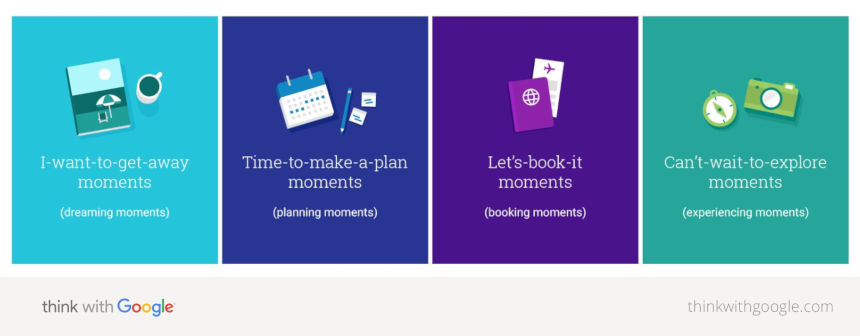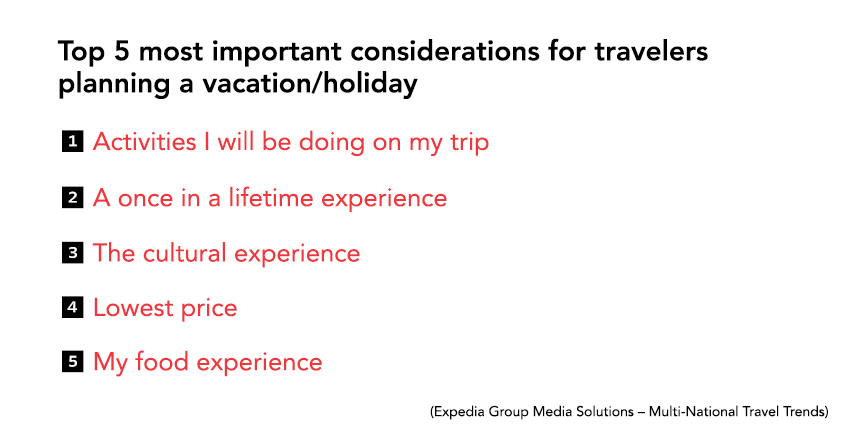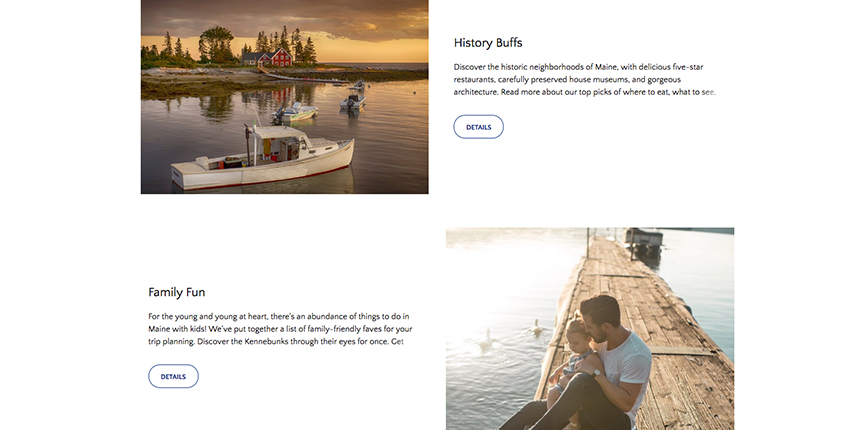
 3-ways-hotels-can-drive-more-bookin...
3-ways-hotels-can-drive-more-bookin... 
The hotel industry is notoriously one of the most competitive, as both big chains and small independent hotels have been competing with online travel agencies (OTAs) for a long time, and more recently have begun competing with Google’s own assets.
OTAs are seen as a necessary evil for some hotels that list with them due to the massive amounts of traffic they receive, but many smaller hotels can’t afford the fees these sites demand. Fortunately, there are a few things that hotel marketers can do to drive organic visibility—as well as traffic and conversions—for their own websites.
Let’s talk about micro-moments
In 2016, Think with Google published a study that outlines four micro-moments on a traveler’s decision-making journey:

- I-want-to-get-away moments (dreaming moments)
- Time-to-make-a-plan moments (planning moments)
- Let’s-book-it moments (booking moments)
- Can’t-wait-to-explore moments (experiencing moments)
Travel micro-moments start when people begin dreaming of a trip, and they continue all the way through the long-awaited trip itself. One key implication for hotel marketers is that even before people are considering where to stay, they are exploring destinations and ideas with no firm plans. At this stage, they are looking for inspiration, and 82% haven’t chosen the accommodation provider they want to book with. That’s where creating great local content can set one hotel apart from the rest.
How to drive more hotel bookings with local content
While price is important, people make travel decisions based more on their hearts than their wallets—choosing their vacations for activities and experiences rather than what will cost the least. Whether it’s for business or leisure, people will choose their accommodation based on the fit with the experience they are trying to have, rather than the other way around. So, it’s imperative for hotels to highlight the location of the property and proximity to some of the area’s top attractions, whether those are beaches and scenic hikes or business centers and restaurants.
-
Show off your local expertise
Having extensive knowledge of the local area around your hotel is an important factor in convincing travel shoppers that your hotel is the best option to meet their needs.
According to a study by Expedia, 78% of travelers said information content from destinations or travel brands can influence their decision-making process. On top of that, a Google study indicates that 67% of travelers are more likely to book with a travel brand that provides relevant information for the destinations they’re interested in.

So, at the very least, every hotel website should have a page dedicated to the local area. Whether it’s called “things to do”, “explore”, or something else, it should highlight the top attractions in the area in order to increase the relevancy of your hotel and its association with the geographical area. Compile a list of the best places to eat, sporting venues, movie theaters, shopping malls, and other points of interest around town. And don’t just promote the most popular things to do—include your own recommendations too; tips that only a local would know.
Hotel website aside, Instagram and other social networks offer another great opportunity for hotels to show off their local expertise. Did you know that 54% of leisure travelers say that pictures of a destination are important when choosing where to go? There’s no better opportunity for hotels to get in front of travelers in the early stages of their decision-making journey than to show off their local area visually.
-
Personalize your content
To take it a step further, you can provide suggested itineraries for different types of guests. A whopping 83% of millennials said they would let travel brands track their digital patterns if it would provide them a more personalized experience. Clearly there is an appetite for this level of service.

Regardless of where your hotel is located, it’s likely that you’ll have guests staying with you for all sorts of different reasons. Check out how the Port Inn in Kennebunk, Maine has created multiple itineraries that are tailored to different types of guests: families, couples, history buffs, outdoor enthusiasts, and more.
-
Get involved with the local community
The importance of reviews to hotel bookings is well established, as studies have shown that 96% of people consider reviews important when researching a hotel. One way to improve your hotel’s word-of-mouth marketing is by connecting with the local community. In today’s world, your community wants to see you making a commitment to your city by getting involved and building relationships. This endeavor should also have the pleasant side-effect of boosting your hotel’s reputation and referrals.
Especially for smaller, boutique hotels or those that choose not to list on OTAs, the value of having community members, business owners, and employees recommending your hotel to others when they’re coming to town could improve your bottom line. Whether it’s hosting a charity event, cooking class or meet and greet, volunteering around town, or sponsoring community events and attending networking functions, there are plenty of ways to build relationships with the locals.
Creating great local content is important in any industry, but maybe none more so than travel and hospitality. Want more tips to help your hotel win in local search? Contact DAC.

